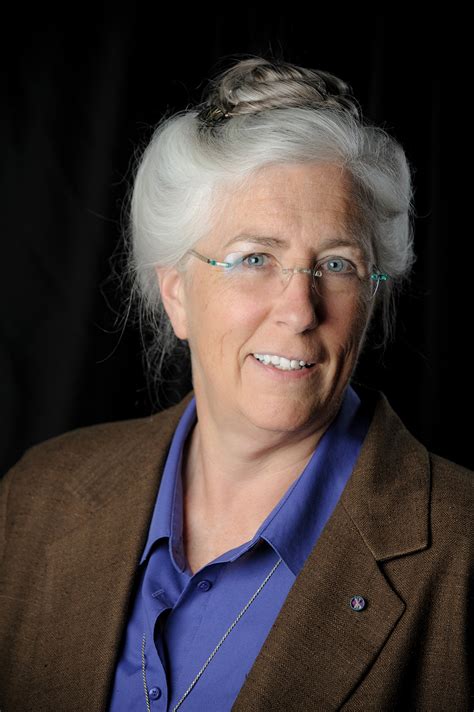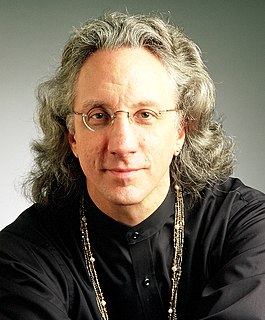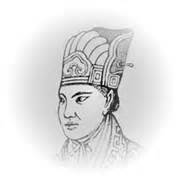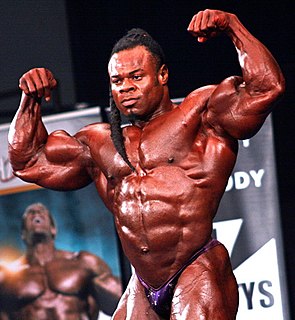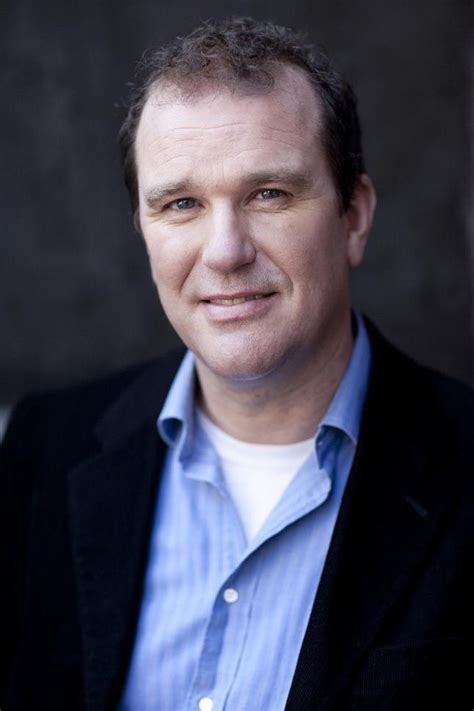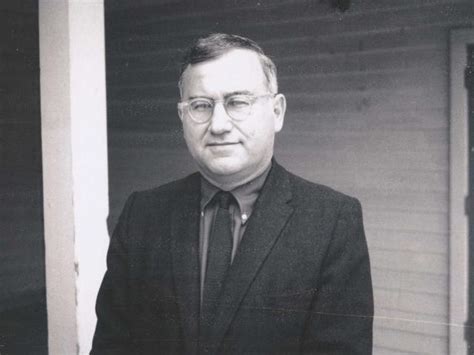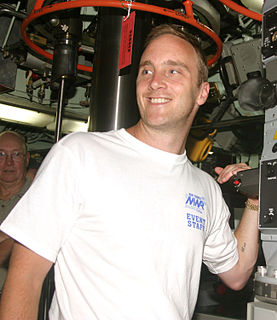Top 237 Compulsive Quotes & Sayings - Page 4
Explore popular Compulsive quotes.
Last updated on April 17, 2025.
A flash of enlightenment offers a preview of coming attractions, but when it fades, you will see more clearly what separates you from that state - your compulsive habits, outmoded beliefs, false associations, and other mental structures. Just when our lives are starting to get better, we may feel like things are getting worse - because for the first time we see clearly what needs to be done.
For years, I believed that anything worth doing was worth doing early. In graduate school, I submitted my dissertation two years in advance. In college, I wrote my papers weeks early and finished my thesis four months before the due date. My roommates joked that I had a productive form of obsessive-compulsive disorder.
There's the part that I just want what I want, and I don't want to be bothered by anything else, and sort of the short-term more compulsive self. And then that's the longer-term, aspirational self that wants to be informed about the world and wants to be a good citizen. The best media basically helps us strike a balance between those two things.
The reason why we want to remember an image varies: because we simply 'love it,' or dislike it so intensely that it becomes compulsive, or because it has made us realize something about ourselves, or has brought about some slight change in us. Perhaps the reader can recall some image, after the seeing of which he has never been quite the same.
The only funny part about Colonial Dunsboro is maybe it's too authentic, but for all the wrong reasons. This whole crowd of losers and nutcases who hide out here because they can't make it in the real world, in real jobs — isn't this why we left England in the first place? To establish our own alternate reality. Weren't the Pilgrims pretty much the crackpots of their time? For sure, instead of just wanting to believe something different about God's love, the losers I work with want to find salvation through compulsive behaviors.
I'm a compulsive reader of fiction. I fell in love with novels when I was a teenager. My wife Marilyn and I... our initial friendship began because we are both readers. I've gone to sleep almost every night of my life after having read in a novel for 30 or 40 minutes. I'm a great reader of fiction and much less so of non-fiction.
Hello, hello.” Magnus swept toward them..."Alec, my darling, Clary. And rat-boy." He swept a bow toward Simon, who looked annoyed. "To what do I owe the pleasure?" "We came to see Jace," Clary said. "Is he all right?" "I don’t know," Magnus said. "Does he normally just lie on the floor like that without moving?" "What –," Alec began, and broke off as Magnus laughed. "That’s not funny." "You’re so easy to tease. And yes, your friend is just fine. Well, except that he keeps putting all my things away and trying to clean up. Now I can’t find anything. He’s compulsive.
By every measure, John Kennedy's sex life was compulsive and reckless. At one level, it had clear public consequences. Knowledge of Kennedy's behavior gave FBI Director J. Edgar Hoover absolute job security, as well as the potential power to derail Kennedy's re-election had he survived assassination.
I make a strong case for poor sexual communication as the root cause of some assaults. I say some assaults because we know, as well, that there are dyed-in-wool, compulsive predators like Harvey Weinstein on campuses too. But there are guys we can reach here. Once again, I'd like to be optimistic in the way that we look at this problem.
So many sins against the poor cry out to high heaven! One of the most deadly sins is to deprive the laborer of his hire. There is another: to instill in him paltry desires so compulsive that he is willing to sell his liberty and his honor to satisfy them. We are all guilty of concupiscence, but newspapers, radios, television, and battalions of advertising men (woe to that generation!) deliberately stimulate our desires, the satisfaction of which so often means the degradation of the family.
Depression is about anger, it's about anxiety, it's about character and heredity. But it is also about something that is in its way quite unique. It is the illness of identity, it is the illness of those who do not know where they fit, who lose faith in the myths they have so painstakingly created for themselves. It is a plague - especially if you add in its various forms of expression, like alcoholism, anorexia, bulimia, drug addiction, compulsive behavior of one kind or another. They're all the same things: attempts to avoid disappearance, or nothingness, or chaos.
Some of my music requires an obsessive-compulsive approach and a real embodiment of excessiveness. So I really have to live in that world of overstimulation. Sometimes I think it's like a drug; more is more, and you can never get enough. The older I get, the more I crave that excessive aesthetic. It's never going to satisfy me.
Indeed, compulsive and rigid moralism arises in given persons precisely as the result of a lack of sense of being. Rigid moralism is a compensatory mechanism by which the individual persuades himself to take over the external sanctions because he has no fundamental assurance that his own choices have any sanction of their own
Now, I'm as appreciative as the next obsessive-compulsive recovering-academic of the vast riches of material becoming available online, thanks to all those Google scanners crouched in the basements of libraries around the world, madly feeding books through their machines. I download obscure tomes onto my iPad and give thanks to the dual gods Gates and Jobs, singing hymns to all the lesser pantheon of geniuses. But there's nothing like a book.
The thing is that I have a really intense, almost compulsive need to record. But it doesn't end there, because what I record is somehow transformed into a creative thing. There is a continuity. Recording is the beginning of a conceptual production. I am somehow collapsing the two - recording and producing - into a single event.
Chyerti—that’s us, demons and devils, small and big—are compulsive. We obsess. It’s our nature. We turn on a track, around and around; we march in step; we act out the same tales, over and over, the same sets of motions, while time piles up like yarn under a wheel. We like patterns. They’re comforting. Sometimes little things change—a car instead of a house, a girl not named Yelena. But it’s no different, not really. Not ever.
We're not going to waste our valuable space or your precious energy by giving equal time to stories of tragedy, failure, and tumult. They get far more that their fair share of attention everywhere else. Future historians might even conclude that our age suffered from a collective obsessive-compulsive disorder: the pathological need to repetitively seek out reasons for how bad life is.
I'm a compulsive note-taker, and I used to feel self-conscious about pulling out my little notebook and taking notes during a casual conversation. Then I noticed that people really seemed to enjoy it; the fact that I was taking notes made their remarks seem particularly insightful or valuable. Now I don't hold myself back.
I'm wearing black leggings and a loose top festooned with a Menger sponge of empty pockets stitched out of smaller pockets and smaller still, almost down to the limits of visibility woven in freefall by hordes of tiny otaku spiders, I'm told, their genes programmed by an obsessive-compulsive sartorial topologist.
Silence and stillness are not states and therefore cannot be produced or created. Silence is the non-state in which all states arise and subside. Silence, stillness and awareness are not states and can never be perceived in their totality as objects. Silence is itself the eternal witness without form or attributes. As you rest more profoundly as the witness, all objects take on their natural functionality, and awareness becomes free of the mind's compulsive contractions and identifications. It returns to its natural non-state of Presence.
After one has been in a lowly position, one knows how dangerous it is to climb to a high place, Once one has been in the dark, one knows how revealing it is to go into the light. Having maintained quietude, one knows how tiring compulsive activity is. Having nurtured silence, one knows how disturbing much talk is.
Sam Kinison was one of the most compulsive people I'd ever seen. James Belushi was that way, and Chris Farley was that way. He was incredibly talented and made me laugh so hard, and there was nothing he wouldn't say. Such a unique, amazing, cynical, realistic, but still optimistic look at life he had. It was great fun to get to know him.
No matter how strong our resolve, we eventually find ourselves enslaved by the compulsive preference for one particular woman. You’ve been caught, my friend. You may as well reconcile yourself to it.” Nick did not bother trying to deny it. “I was going to be so much smarter than you,” he muttered. Sir Ross grinned. “I prefer to think that intelligence has nothing to do with it. For if a man’s intellect is measured by his ability to remain untouched by love, I would be the greatest idiot alive.
I suppose I could read more fiction, but I haven't moved in that direction. I'd like more time even though I spend six hours a day reading. People say their eyes get tired, but I've never experienced that. In college I used to read 10 hours a day. My wife says I'm obsessive compulsive. She might have a point because when I was an undergrad student we had the required reading list and the suggested reading list. I always read all the suggested reading too.
Notice that whenever we suffer pain, the mind is always quick to identify with the negative aspects of things and replay them over and over again, wounding us deeply. Almost all humans have Obsessive Compulsive Disorder (OCD) of the mind, which is why so many people become fearful, hate-filled, and wrapped around their negative commentaries. This pattern must be recognized early and definitively. Peace of mind is actually an oxymoron. When you're in your mind, you're hardly ever at peace, and when you're at peace, you're never only in your mind.
As Bartok put it so succinctly: "Competitions are for horses." Nothing could be more barbaric that the practice or ranking artists as though they were divers or figure skaters....What one suspects is that the appetite for dividing the world into winners and losers, anointed and anonymous, is so compulsive that it feeds with special, vindictive hunger on the most elusive and ephemeral of subjects. For if music can be reduced to games of power and success, then innocence-love without profit-can be dealt a crushing blow.
One thing you who had secure or happy childhoods should understand about those of us who did not. We who control our feelings, who avoid conflicts at all costs, or seem to seek them. Who are hypersensitive, self-critical, compulsive, workaholic, and above all survivors. We are not that way from perversity, and we cannot just relax and let it go. We’ve learned to cope in ways you never had to.
The achievement of great things though comes from the ability to manage yourselfvery, very, very well. Or at least well enough where you almost become compulsive about getting certain things done. You have to set a standard for yourself that's.very, very, very high and you have to manage your thoughts to where they need to be allow yourself to be successful, at what your trying to do.
The philosopher Descartes believed he had found the most fundamental truth when he made his famous statement: "I think, therefore I am." He had, in fact, given expression to the most basic error: to equate thinking with Being and identity with thinking. The compulsive thinker, which means almost everyone, lives in a state of apparent separateness, in an insanely complex world of continuous problems and conflict, a world that reflects the ever-increasing fragmentation of the mind.
Johnson is wise, Boswell foolish; Johnson warns and abstains, Boswell plunges; Johnson is rather a great man writing than a greatwriter, Boswell is a great writer and an ordinary man; and they are two of a kind, abysmal melancholics and compulsive socializers, afraid of solitude and afraid of death and dissolution, victims of themselves, meant for each other, needing each other, needing evidence and arguments (Boswell is a lawyer, Johnson magisterially dictates to him some of his briefs), making beautiful models of rational discourse out of the useful substance of all they know.
Scientists are people of very dissimilar temperaments doing different things in very different ways. Among scientists are collectors, classifiers and compulsive tidiers-up; many are detectives by temperament and many are explorers; some are artists and others artisans. There are poet-scientists and philosopher-scientists and even a few mystics.
I believe that the creative impulse is natural in all human beings, and that it is particularly powerful in children unless it is suppressed. Consequently, one is behaving normally and instinctively and healthily when one is creating - literature, art, music, or whatever. An excellent cook is also creative! I am disturbed that a natural human inclination [creative work] should, by some Freudian turn of phrase, be considered compulsive - perhaps even pathological. To me this is a complete misreading of the human enterprise. One should also enjoy one's work, and look forward to it daily.
The reality is that living digitally rewires our brains for perpetual motion, shallow surface thinking, and compulsive/addictive behaviors. Because our world is only going to become more tech-driven with each passing day, unless we find ways to counterbalance these detrimental effects, we'll remain spiritual babes, drinking milk for the rest of our lives instead of the solid food God has for us.
I'm pretty obsessive-compulsive and I'm very fast. I tend to not write for a long period of time until I can't not write, and then I write first drafts in gallops. I won't eat right. I forget to do my laundry. I have a dog now, and I have to remember to walk him. When I write, that takes over and I can't do anything else. There's something exciting about that free fall, but then my life gets really screwed up. I've lost lots of relationships because of my having to ignore everything.
It's not easy to live every moment wholly aware of death. It's like trying to stare the sun in the face: you can stand only so much of it. Because we cannot live frozen in fear, we generate methods to soften death's terror. We project ourselves into the future through our children; we grow rich, famous, ever larger; we develop compulsive protective rituals; or we embrace an impregnable belief in an ultimate rescuer.
I'd have no rituals, but I'm a person of compulsive habit. That's just some awful residue of a ritual. And one of the reasons for that is my living this life, which is otherwise so free of obligations. It's not at all unusual for anybody who's independently employed to crave a way of living whereby they create the structures without which their lives would otherwise start slopping around all over the place.
In true meditation the emphasis is on being awareness; not on being aware of objects, but on resting as primordial awareness itself. Primordial awareness is the source in which all objects arise and subside. As you gently relax into awareness, into listening, the mind's compulsive contraction around objects will fade. Awareness naturally returns to its non-state of absolute unmanifest potential, the silent abyss beyond all knowing.
As businessmen caught a glimpse of the potentialities inherent in endlessly expanding the wants of people under consumerism, forced draft or otherwise, many began to see blue skies... What was needed was strategies that would make Americans in large numbers into voracious, wasteful, compulsive consumers-and strategies that would provide products assuring such wastefulness. Even where wastefulness was not involved, additional strategies were needed that would induce the public to consume at ever-higher levels.
When people are told to "eat many small meals," what they may actually hear is "eat all the time," making them likely to respond with some degree of compulsive overeating. It's no coincidence, I think, that obesity rates began rising rapidly in the 1980s more or less in tandem with this widespread endorsement of more frequent meals.
Many ideas have struggled over the centuries to dominate the planet. Fascism. Communism. Democracy. Religion. But only one has achieved total supremacy. Its compulsive attractions rob its followers of reason and good sense. It has created unsustainable inequalities and threatened to tear apart the very fabric of society. More powerful than any religion, it has reached into every corner of the globe. It is consumerism
I am, I must confess, suspicious of those who denounce others for having too much sex. At what point does a healthy amount become too much? There are, of course, those who suffer because their desire for sex has become compulsive; in their case the drive (loneliness, guilt) is at fault, not the activity as such. When morality is discussed I invariably discover, halfway into the conversation, that what is meant are not the great ethical questions but the rather dreary business of sexual habit, which to my mind is an aesthetic rather than an ethical issue.
When you look at obesity in the United States, clearly it is not a bunch of stupid people. It has nothing to do with intelligence. Sometimes people who are dealing with issues of obesity and compulsive eating know more than I will ever know about nutrition, metabolism, and exercise, because they have studied it. But clearly the real problem, and therefore the real solution, is on another level of consciousness, and that is where the spiritual work comes in.
We don't experience things collectively or cathartically anymore. Viewing has become an intensely private, fetishistic, compulsive process that happens separately from others, and that reflects not only our relation to cinema as a space of possibility, belief, and imagination. But more generally, of what could be, of readiness, which is what the movies have historically been about - the ability to act on things and change.
When people are told to 'eat many small meals,' what they may actually hear is 'eat all the time,' making them likely to respond with some degree of compulsive overeating. It's no coincidence, I think, that obesity rates began rising rapidly in the 1980s more or less in tandem with this widespread endorsement of more frequent meals.
What did Nabokov and Joyce have in common, apart from the poor teeth and the great prose? Exile, and decades of near pauperism. A compulsive tendency to overtip. An uxoriousness that their wives deservedly inspired. More than that, they both lived their lives 'beautifully'--not in any Jamesian sense (where, besides, ferocious solvency would have been a prerequisite), but in the droll fortitude of their perseverance. They got the work done, with style.

















